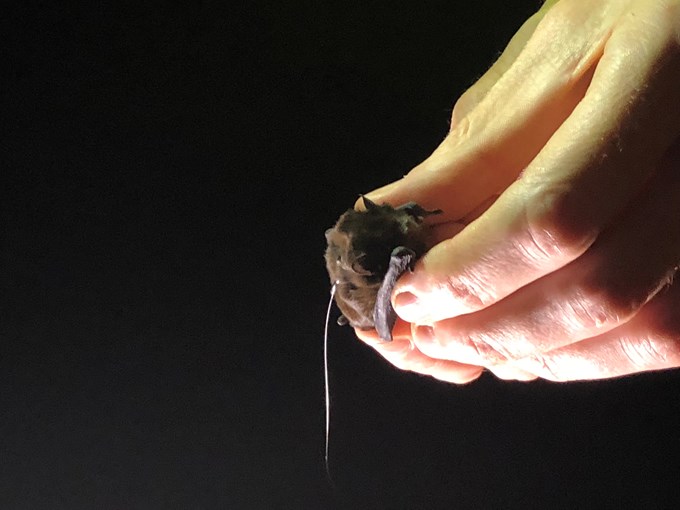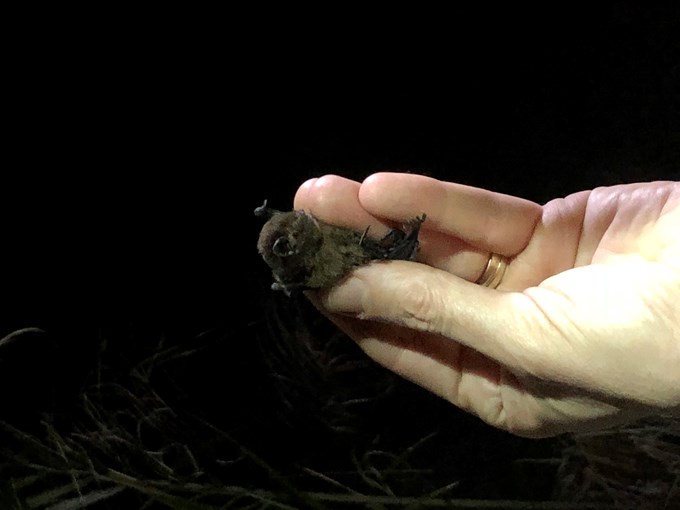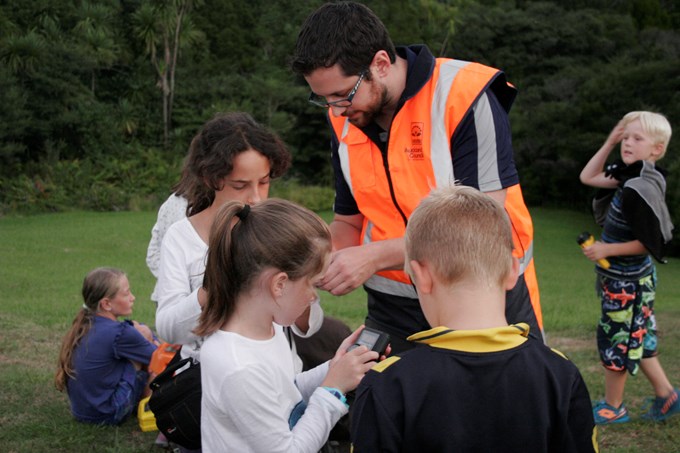On the last days of February, a team of researchers, including Auckland Council biodiversity advisor Ben Paris (alias 'Batman'), made the last attempts for the summer season to trap and tag the elusive indigenous long-tailed bat, our only native land mammal.
Fortunately for the team, two post-breeding female bats were caught at the beginning of this vital research.
The Waitākere Ranges is home to this nationally critical species (which is rarer than the brown kiwi).
From the ranges, they travel along streams and through urban areas in search of food like moths, mosquitoes and other flying invertebrates. Pest Free Auckland credits the restoration of the bats' habitat and pest control work for its return to urban areas.
Helping the species survive
Auckland is one of the only cities in the country to still have a resident population and understanding their habitat, population and movements allows us to help the 'micro-bat' survive.
Weighing between 8g and 14g, this tiny bat is the size of a thumbnail hand has the wing-span of a hand. It navigates by producing ultrasonic sounds. The team have fitted transmitters to those captured in the hunt to allow them to track their travels to understand their movement and where they roost during the day.
Better protection of roost trees, predator control and restoration of habitat will be essential for this species to survive so close to Auckland’s urban edge in the future.
The project is a partnership with Community Waitākere and AECOM consultant and funded by Auckland Council’s Regional and Environmental Natural Heritage fund. It will continue with further captures next spring/summer.




